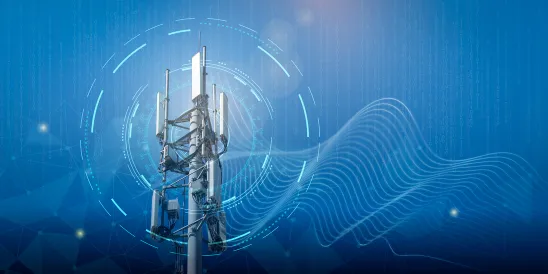Transfer of Control NAL
The FCC issued a Notice of Apparent Liability for Forfeiture (“NAL”) to Vero Broadband, LLC (“Vero”) for failing to obtain the Commission’s prior approval before acquiring entities holding FCC Section 214 authorizations and wireless radio licenses. Domestic Section 214 carriers seeking to transfer control of their lines or authorization to operate must obtain prior approval from the Commission. Similarly, Commission consent is required prior to consummating any substantial transfer of control or assignment of wireless radio licenses to another party. The Commission has proposed a $48,000 fine against Vero for violations of these rules.
6 GHz Systems Modification
Broadcom, Inc., the Wi-Fi Alliance Services Corp., and the Wireless Broadband Alliance, Inc. submitted a letter to the FCC requesting approval to modify the code they use for their 6 GHz Automated Frequency Coordination (“AFC”) systems. The entities make up three of the six AFC system operators approved by the FCC last month to manage access to spectrum for unlicensed devices in portions of the 6 GHz band [Vol. XXI, Issue 9]. AFC system operators must inform the Office of Engineering and Technology (“OET”) and the public of any modification to their systems and receive OET approval prior to implementing the modification. These three AFC system operators seek to correct a computational discrepancy that led the systems to be significantly over-conservative when applying incumbent interference protection.
ACP Estimated Reimbursement Range for May
The FCC’s Wireline Competition Bureau (“WCB”) announced the estimated reimbursement range for Affordable Connectivity Program (“ACP”) benefits in the month of May, which is expected to be the last month for which providers will be able to seek reimbursement, absent additional funding from Congress. The ACP will not be able to reimburse providers for the full statutory benefit amount for service and device benefits applied to ACP service bills in May. Providers are reminded to notify the Universal Service Administrative Company (“USAC”) of their intent to participate in the program in May, which is not a requirement. The final maximum reimbursement amount will be announced by the FCC in April.
988 Lifeline Georouting NPRM Circulated
FCC Chairwoman Jessica Rosenworcel circulated a draft Notice of Proposed Rulemaking to her colleagues that would require wireless service providers to use georouting on 988 Suicide and Crisis Lifelines (“988 Lifeline”) calls. Calls to the 988 Lifeline are currently routed based on the caller’s area code and exchange. The FCC’s proposal would ensure that a call be routed based on the location of the caller by using information about the cell tower that originated the call, among other factors. The proposal seeks to maintain the privacy of the exact location of the caller because of the sensitive nature of the calls placed on the 988 Lifeline.
Thomas B. Magee, Tracy P. Marshall, Sean A. Stokes, and Wesley K. Wright also contributed to this article.







 />i
/>i

